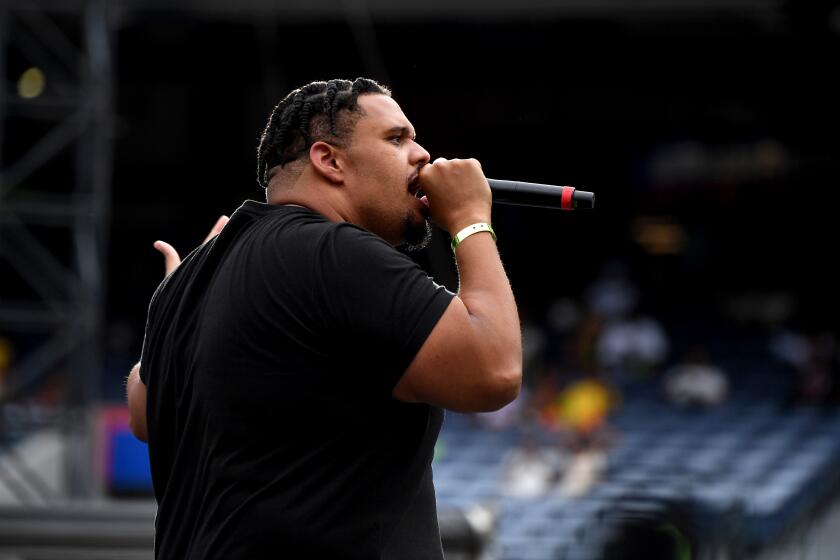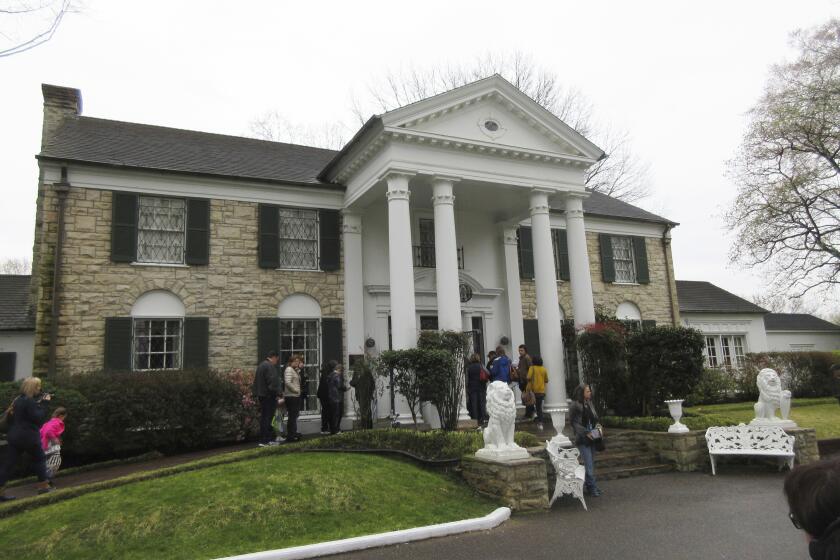WRITERS STRIKE CHRONOLOGY
Following is a chronology of events surrounding the 150-day Writers Guild strike:
Dec. 16, 1987. Guild and producers exchange proposals. Writers want hike in foreign residuals and expanded creative rights, including consultation on the choice of actors and director for some movies and TV programs. Producers want a softened, percentage-based formula for one-hour TV residuals and cost cuts in other areas.
Jan. 12, 1988. Negotiations begin.
Feb. 29. Contract expires, but talks continue.
March 1. Guild members vote 96% in favor of authorizing a strike.
March 6. Producers make “last and final offer,” softening some points but insisting on the one-hour TV formula and rejecting the guild’s foreign residual demand.
March 7. Strike begins. “The Tonight Show” and a few other daily programs are immediately affected.
March 8. Federal Mediation and Conciliation Service renews talks.
March 10. Talks break off without progress. Guild refuses to grant a waiver allowing its writers to work on the annual Academy Awards show.
April 18. Sides meet again with the federal mediator. Talks break off after 20 minutes.
April 28. CBS delays fall season to end of October from its intended Sept. 5 start.
May 11. Johnny Carson returns to the “Tonight Show,” writing his own material.
May 23. Negotiations resume with the federal mediator.
May 26. Guild decides to offer independent contracts to producers. Sixty-four companies sign such contracts with guild, including makers of the Bill Cosby, David Letterman and Johnny Carson shows.
June 16. After intensive bargaining, producers make “strike settlement offer,” extending contract term to four years and expanding creative rights but still demanding percentage-based TV residuals and still refusing guild’s demand for more foreign residuals.
June 23. Guild members reject contract offer in 2,789 (74.9%) to 933 (25.1%) vote.
June 29. Brandon Tartikoff, NBC entertainment president, vows to rely on “writer-proof” programming if strike does not end by July 14, and not buy shows from independents who settle separately.
July 1. Guild devises new interim contract with provisions offering any producer who signs terms at least as good as those ultimately accepted by the alliance.
July 6. Guild members approve new contract; ultimately more than 150 smaller producers sign agreements with the guild. ABC says it will not buy from independents with guild contracts.
July 7. CBS, Fox and Paramount say they will not buy shows from independents with guild contracts.
July 12. Guild files antitrust suit against 18 studios and networks, accusing them of mounting an illegal boycott against producers who signed independent contracts.
July 14. Twenty-one dissident guild members file National Labor Relations Board charge seeking to invalidate guild rules that bar them from returning to work during a strike. They say some of the group will resign active membership in the guild and return to work if strike is not settled by July 28.
July 23. Formal bargaining resumes under the auspices of federal mediators.
July 30. Federally mediated talks collapse at 1:10 a.m. Saturday. The companies say they will not bargain further, and plan to concentrate on producing movies and TV shows with nonunion scripts.
July 31. Entertainment attorney Kenneth Ziffren and other emissaries open informal communications between guild and studio heads, while guild negotiators meet in marathon sessions aimed at reviving talks.
Aug. 2. Guild officials and studio representatives meet to discuss latest “shuttle diplomacy” proposals.
Aug. 3. Tentative agreement announced.
More to Read
The biggest entertainment stories
Get our big stories about Hollywood, film, television, music, arts, culture and more right in your inbox as soon as they publish.
You may occasionally receive promotional content from the Los Angeles Times.






